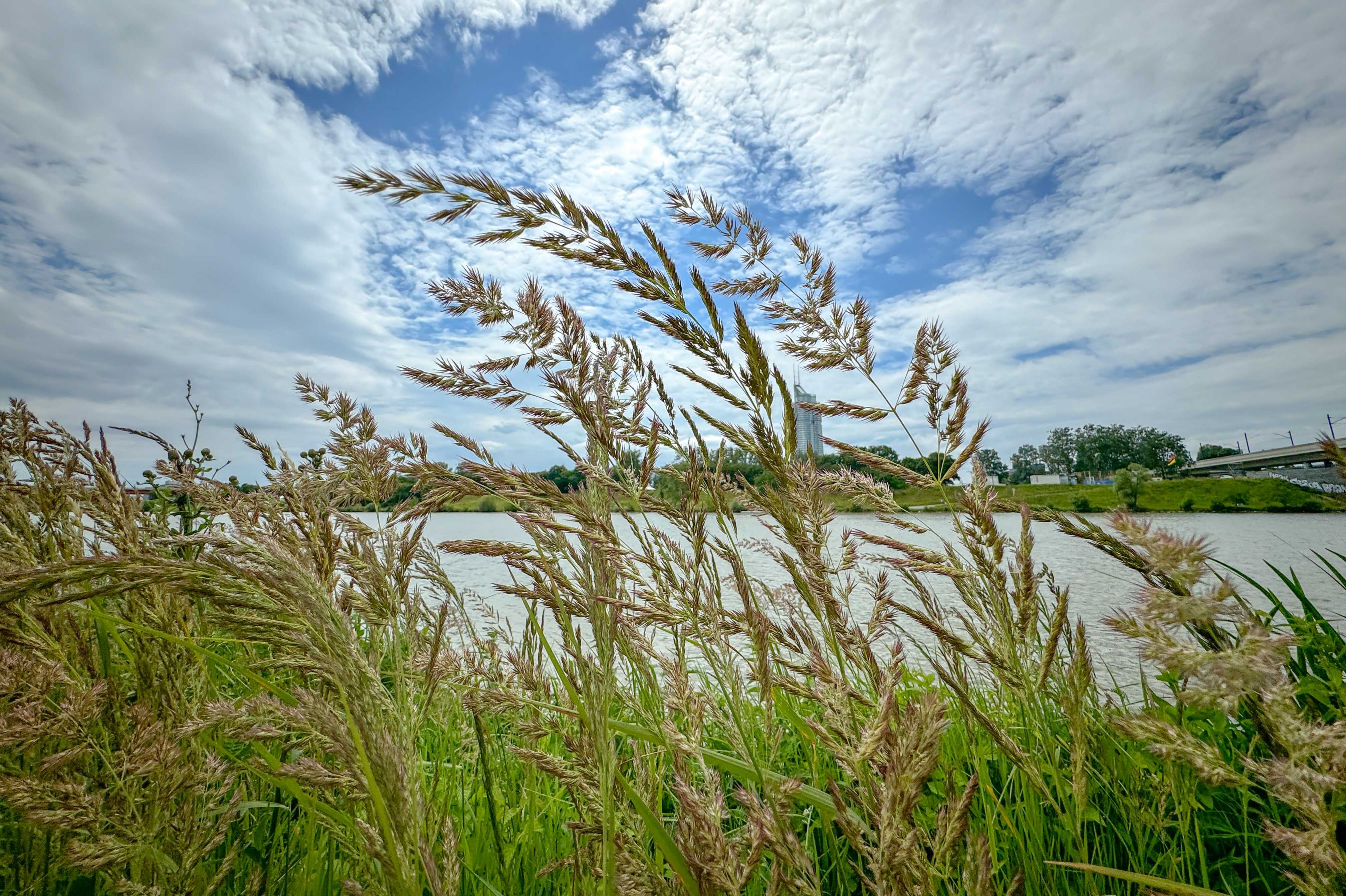
(Vienna, 17 June 2025) Allergy sufferers need to prepare themselves for the pollen release again this year at the Danube Island Festival next weekend, from 20 to 22 June 2025. The 2025 grass pollen season has been above average so far, reports MedUni Vienna's Pollen Service Vienna. Until recently, there were still high pollen concentrations throughout the city. However, the peaks are now over. In addition to grasses as the main allergen, the tree of heaven, sweet chestnut and fungal spores also play a role.
The peak values of this year's grass pollen season are over. The pollen concentrations are already declining and high levels are becoming increasingly unlikely. Among the flowering grass species on the Danube Island, ryegrass, reed grass and bentgrass are important. Ryegrass is the most dominant of these and covers a large part of the meadow areas on Danube Island, while reed grass and bentgrass tend to be found near the water on the banks of the Danube.
The grass pollen season has been above average so far. When the sun is shining, increased pollen concentrations are still possible locally, although this is mainly to be expected in the mornings for most grasses. The flowering of grasses has now shifted to shadier areas. There is a risk of renewed exposure in the evening, as the lack of thermals can cause pollen to sink from higher air layers.
The meadows apart from grasses
Plantain grows and blooms in the meadows and along the roadsides on the Danube Island and in the rest of Vienna. Plantain often plays a role in grass pollen allergies. The plantain pollen season is average based on the measurements of the Vienna Pollen Service.
Dock also occurs in the meadows. However, dock pollen only plays a subordinate role.
Nettle plants such as stinging nettle and glasswort are still in bloom as well.
Tree of heaven and sweet chestnut
The main flowering of the tree of heaven has already come to an end, but as it is widespread in the Danube area, there may still be a relevant pollen concentrations. The tree of heaven causes pollen levels especially in the city centre of Vienna and is a potential new allergen that benefits from climate change.
The sweet chestnut grows locally on the Danube Island and has started to flower as well. Allergy to sweet chestnut pollen itself is rare, but it is an important cross-allergen in birch pollen allergy. Tree pollen allergy sufferers could therefore be affected.
Fungal spores in the air too
Spore flight benefits from warm and humid conditions. Shortly after rainfall, spore concentrations increase rapidly in warm weather. We are currently still in the middle of the fungal spore season. Alternaria and Cladosporium are the most important representatives in the spore flight.
Maximilian Bastl from MedUni Vienna's Pollen Service Vienna recommends: "Depending on whether you react to the allergens that are currently in the air, you need to be more or less prepared. In any case, you should always remember your medication and have it in stock, especially if you are currently suffering from symptoms." Visitors to the Danube Island Festival will find relatively typical conditions for this time of year in terms of pollen and spore concentrations. It is advisable to be prepared so that you can join in the celebrations in the best possible way.